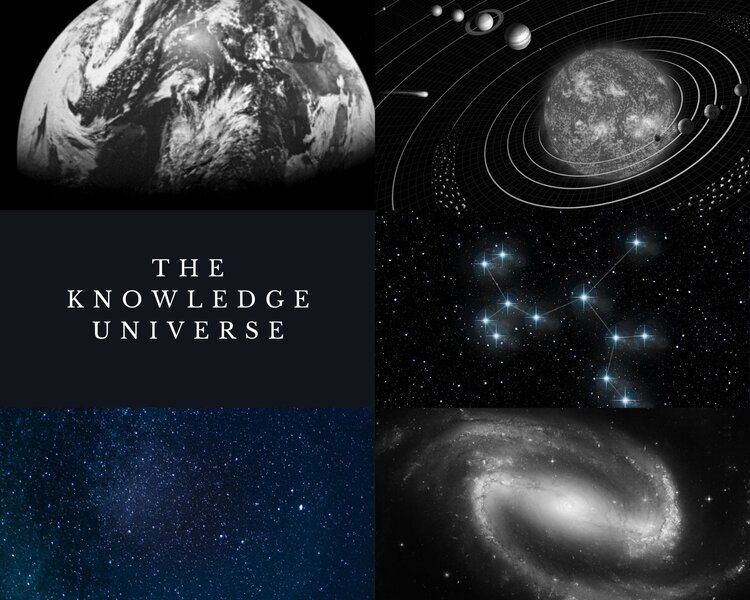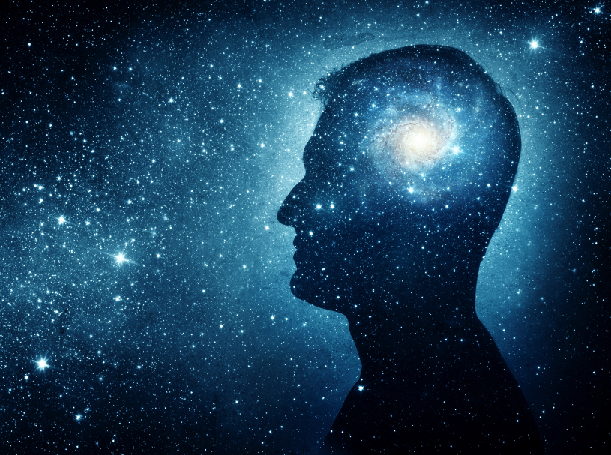The new decade is here, and we can only wonder what it will bring. Some people are anxious. Others are more positive than ever. While there are many circumstances that we have no direct control over, certain things are within our reach.
One such thing is Knowledge. It is evident to many that learning new things is a requirement for personal development. Knowledge, however, is not power unless it can be applied. But is there some order in what seems like a random learning process? A highly-specialized expert will say, "Duh! Of course, I learned it all on purpose!"
There are numerous people, however, who touch upon many subjects and sometimes feel like they lack focus. The longing for a particular direction in their studies intensifies with each passing year.
I was like that, too, until I understood that the focus would eventually come. None of my undertakings were in vain. I just needed to pay attention.
In this post, I will talk about:
- my approach to categorizing knowledge;
- how I come across new information;
- where the search has led me so far.
Ready?
The Knowledge Universe
Over time I came up with my own nomenclature about how my brain organizes information that it receives endlessly. As an admirer of the Cosmos due to its vastness, beauty, and mysteriousness, I broke down the stream of data directed at me using space terminology. Here is what this categorization looks like:
- A planet is an abstract piece of information that, on its own, is useless in practical terms. For example, the existence of goods.
- A star (or a solar system) is a collection of information bits that are united by relevance to each other. They are semantically connected. But you cannot yet act upon this knowledge. For example, markets are made of individuals exchanging goods and services. The planets in this system are the existence of individuals, goods, services, money; the notion of exchanging, buying, and selling.
- A constellation is a number of stars connected meaningfully to each other, creating a unified picture. Constellations form useful knowledge that can be applied in the real world. For example, there is an import opportunity in Russia for China-made budget cars. The stars in this formation are general knowledge about markets, familiarity with countries like Russia and China, understanding of goods and services traded between the two countries, insight on unsatisfied demand for budget cars in Russia, data on increased supply of budget cars in China, etc.
- A galaxy consists of numerous constellations united by a common semantic thread. It is a vast area of knowledge, generally classified as a discipline in the physical world. Galaxies are not static: constellations and stars appear and disappear in them all the time. From a practical point of view, it is impossible to master a galaxy, i.e., learn everything there is to know about it (every constellation, star, and planet). For example, economics. It encapsulates such constellations as Austrian economics, the Chicago school, monetary theory, international trade, free-market capitalism, the bitcoin standard, and so on.
- The Universe is knowledge about everything that has ever been, is, and will be. Made of infinitudes of galaxies, it is unattainable to any creature on any plane of existence but the One pervading it all. It is the World, Nature, God.

This hierarchy could be more detailed, but the current model works well for me. How?
When I lack an answer to the question "How can I apply this knowledge?" I realize that what I possess is a mere star. The search for more relevant stars must continue until they start forming a constellation. When the constellation takes shape, I will know what to do.
Dedicating your life to studying one or more galaxies can make your career. The more constellations you master in a given galaxy, the higher the chance you will be considered an expert in the field.
As for the Universe itself, it is an unfathomable ideal that we, nevertheless, should strive for. It may be discouraging at first to know that you will never run out of things to learn. However, once you cultivate your love for education, the realization that this is the best thing to happen to you is inevitable.
Modus Operandi
With a few solid data points, my right brain has no difficulty convincing the left brain of a need in paradigm shift. The downside is that I often change opinions, which makes me inconsistent short-term. However, there is only one Truth.
Eventually, I arrive at Truth and take a position. From that moment on, further knowledge in a particular direction is not changed drastically but rather amplified.
When I swallowed the Bitcoin red pill and learned that our monetary system is a complete fraud, the stupefying realization of "How can this be?" was accompanied by a feeling of satisfaction about possessing this bit of Truth. A real dopamine rush—enough to get me hooked. Was there more?
"The truth is out there."—The X-Files
Having learned enough about Bitcoin to solidify my stance (but not nearly everything), I felt an urgency to pursue other topics, find more red pills. Mind you, this approach can quickly become a slippery slope, which I had to learn the hard way: in the sea of noise, signal is often lost. Increased signal-to-noise ratio in your research only comes with time and experience unless you possess a highly analytical mind equipped with a sophisticated bullshit detector.
I did not google "What red pills are there?" or "Conspiracy theories" but employed a rather holistic attitude. Every piece of literature I read had references to external sources such as other authors, books, and articles. Marking what seemed appealing at the moment and finding out more about it later was all I did and continue to do. As mentioned, this rabbit hole of knowledge is bottomless. Falling into it may be scary at times but always satisfying.
This way, I learned, to various degrees, about economics, business, politics, psychology, sociology, space, history, religion, spirituality. I have not truly mastered any of these, so critics may say that I lack focus and probably be right in the material sense. However, I cannot help but feel that I am gently led on this path, that there is a purpose in my knowledge nomadism.
After several years in free fall, I find it to be true.
The Common Thread
Now that I have explained how I categorize knowledge and how I attain it (stumble upon it may be a better word), where does this process lead me?
We are all raised in varying environments under different circumstances. Each individual goes through a deeply personal journey throughout their life; it is always unique. But often, people spend their time on earth oblivious to the fascinating things that happen around them, for them. I believe there is a unifying theme in my personal experience, and, with a bit of awareness, openness, and attention, you may discover your own.
What have I found? Or what found me? Spirituality.
Young and Rebellious
Having been born in Russia, it was only natural that my parents were Orthodox Christians. I was baptized when I was about two years old.
Like many believers, my parents were not frequent churchgoers. Their attendance was limited to once or twice a year and rarely with the children. Naturally, I never developed any interest in religious rituals.
During my teenage years, I declared myself an atheist and, in a rebellious manner, liked to argue with friends and even mock them from time to time. (Gladly, I had a good sense of humor which made them laugh.) My atheism was with me through mid-twenties but never became "militant." Sporadic arguments and jokes were there mostly as acts of self-validation.
A major shift happened when the logic behind agnosticism appealed to me. We cannot prove or disprove the existence of God; that is why confirming or negating it is illogical. Good enough, I bought it, albeit for a short period. My biggest issue with agnosticism became apparent relatively quickly. I am what you would call a "truth seeker," meaning that lack of knowledge and vagueness on matters of interest do not appeal to me. I want to know what is, not what might be.
What happened next?
Unexpected Connections
As I started my descent into the rabbit hole of Knowledge, my selective memory began storing away random stand-alone stars. Some of them were in deep space, inaccessible for years until a new star would appear and make an immediate connection with them. Thus, new constellations were born that would finally reveal why my brain chose to keep those seemingly irrelevant pieces.
To my surprise, all the disciplines that I dipped my toes into had the same theme about them. At first, I thought, "Ah, what a coincidence!" As the motif popped up more often, I could not help but pay attention to it. And then, finally, I felt a desire to seek it. (Confirmation bias helps in this case.)
What was it? I will give you a few examples.
- As an entrepreneur, I may read an occasional business book. In "Think and Grow Rich" Napoleon Hill stated the following:
"Remember that your dominating thoughts attract, through a definite law of nature, by the shortest and most convenient route, their physical counterpart. Be careful what your thoughts dwell upon."
- Carl Jung, a famous Swiss psychoanalyst, remarked once:
"We should not pretend to understand the world only by the intellect. The judgement of the intellect is only part of the truth."
- I am a fan of David Lynch's cinematic work. In a recent interview, he was asked a question about mediation. This is a snippet from his answer:
"Each and every one of us human beings has a field within us, a treasury within us. And this treasury is known by many names. But it's like an ocean of pure consciousness, pure bliss. Unbounded this field is. Unbounded, immutable, eternal, immortal consciousness."
- Quantum physics and neuroscience are fascinating enough subjects for me to take an interest in them. Thanks to the Internet, we are now able to enjoy research materials not only from academics but from amateur researchers as well. Some go quite deep. Examples of such research are Athene's Theory of Everything and Robert Lanza's Biocentrism.
- Naturally, philosophy piqued my curiosity, too.
"Look well into thyself; there is a source of strength which will always spring up if thou wilt always look."—Marcus Aurelius, The Meditations
- Modern spiritual teachers talk about similar things:
"If you get the inside right, the outside will fall into place. Primary reality is within; secondary reality without."—Eckhart Tolle, The Power of Now
- And, of course, religious texts are full of such references:
"The kingdom of God is within you."—Jesus Christ
What is this "field" inside us? This inner world that seems a lot more important than the outer, external reality? What is this "other part of the truth," and which law of Nature is associated with it? Thinkers from all over the world, from unrelated areas of expertise, separated in time by hundreds and even thousands of years describe the same mysterious phenomenon—how could I ignore this?
Whatever it is, the feeling has so far been that I need to find out.

"Yuri, New Age! You just discovered New Age!" you may claim. Indeed, it does sound new-agey, and I studied some relevant materials as part of my search. But I cannot get rid of the notion that New Age is a bastardized, simplified, and commercialized version of something that goes a lot deeper in meaning, dates back thousands (if not millions) of years, and is of great importance both to me as an individual and our whole species. Therefore, I avoid labels.
My path leads me to pick up works on spirituality, consciousness, philosophy, mysticism, esotericism, alchemy. Some of it may be pure fluff, hallucinations of madmen, or salvation-as-a-service sold by snake-oil salesmen. Other pieces may hold the key to the Universe itself! I am confident that it is not a waste of time because, in my case, it is rooted in emotion—that powerful agent that tells you whether you are on track or not.
Find Your Own Way
Whether I am affected by purely psychological aspects of my mind, or there is some Grand Plan that I am a part of, giving in to this condition feels right. I believe that participating in it consciously, with full awareness, gives me a great deal of confidence, removes doubt, and makes me determined in the face of obstacles that material life likes to throw around. It all comes down to one thing that a lot of lost souls lack these days: meaning.
At this time, I suspect that I have only scratched the surface. Will I have a clearer picture of what exactly I am looking for (or of what wants to be found) five, ten, or twenty years from now? No idea. But it attracts me like a magnet, so I may not have a choice but to keep digging.
If you were to sit down, review your life, analyze everything you read, watched, listened to and experienced by accident or on purpose, would you be able to find a common theme, an idea that holds it all together like a thread in a bead bracelet?
Ponder upon it. It might just be the most significant thing in your life.

